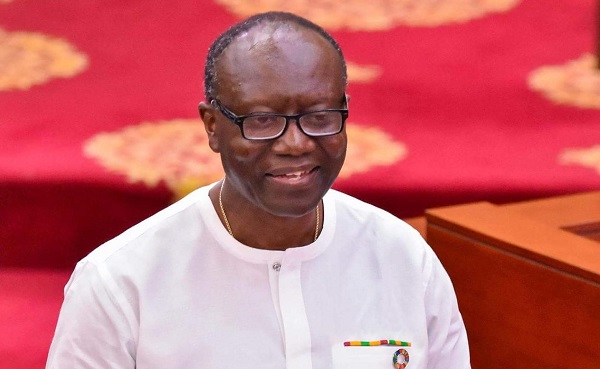Since he was appointed Minister of Finance, he has regularly gone to Parliament in his all-white outfit and holding a brown bag containing the budget and economic policy statement of the government. I was intrigued to see the traditional brown bag replaced by a green one as he strolled to Parliament to present the government’s budget and economic statement for Fiscal Year 2024.
This is his last budget presentation, I believe, except for the mid-year review next year.
Ordinarily, I would discuss my impressions of the budget presented. However, I want to use this occasion to look back at the Ofori-Atta Years and the many questions running through my head as I try to reconcile the man who won my admiration and confidence during his vetting with the difficulties the Ghanaian economy has come to face during his tenure.
In retrospect
During the vetting of ministers at the beginning of the Akufo-Addo administration, the one person who won my admiration was Mr Ofori-Atta. His answers to questions were refreshing. I admired his thinking, especially on fiscal policy. I knew he was not naive and understood well the politics of budgeting and financing. But I was also convinced that politics would not trump sound fiscal policy with him as minister of finance. I had one worry - that for those for whom politics may trump sound fiscal policy, efforts will be made to undermine his tenure. In the end, I allowed my hopes to trump my fears. His tenure witnessed several fiscal policy choices, some of which were popular (various tax cuts in the first year of the administration), and others which were very unpopular (E-levy, Agyapa). The results of the many policy choices have been mixed, in my opinion. What happened between vetting and being in charge?
Related to the point above, I recall his insightful response to the question of deficit financing and his description of fiscal responsibility as the extent to which the resource envelope could be “pushed” to meet government obligations. When I think of the government’s debt exchange programme, I think back to this moment and ask what happened along the way.
This is the first time we have had a Finance Minister whose budget presentations had an unusually high spiritual flavour as he regularly interspersed them with quotations from the Bible.
Anytime I watched him, he reminded me of one of the books I enjoyed reading as a political science student, titled “The Political Meaning of Christianity.” I often tried to understand the intersection of his faith and his role. What was his motivation for taking this approach? To what extent, if at all, did his faith shape his decisions on matters of fiscal and economic policy?
Every public figure has their high and low moments. If I were to pick some of the moments I would characterise the lows of his tenure, these three come to mind – a) the motion of censure brought against him; b) the bold declaration that the country will not seek an IMF bailout; and c) the call on the President by several members of Parliament from his own party for his removal from office. Why did he stay? Did it ever cross his mind to step aside, judging from what I considered a growing uproar about not just the state of the economy but about his tenure in office? Did the strong backing of the President gave him the impetus to not hang his boots?
But through it all, he displayed a sense of optimism. He gave Akan names to all the budget statements he read. Every single one of those names, even in difficult times, signalled optimism. What drove that sense of optimism?
So, what happened?
When COVID-19 hit, his reflection piece ‘What does an African Finance Minister do now?’, in which he used the phrase “I have a lump in my throat”, was refreshing to read because it captured the harsh reality of the limited fiscal choices African countries could exercise to insulate their economies from total collapse. How much did COVID-19 truly derail the tenure of Ken Ofori-Atta? As I wrote two weeks ago, the COVID explanation has limitations. However, the question is still worth asking.
As I watch Ken Ofori-Atta exit the stage, the man who won my admiration during his vetting, I can’t help but wonder what happened. How did his tenure become the period where in the most recent round of the Afrobarometer survey (2022), only 18 per cent rated the government’s management of the economy positively?
How could the tenure of Ken Ofori-Atta have turned out differently to produce the results of the fiscal vision he articulated with conviction as I watched his 2017 vetting?
Perhaps this should be my next book project.
The writer is a Democracy and Development Fellow at the Ghana Centre for Democratic Development (CDD-Ghana).

